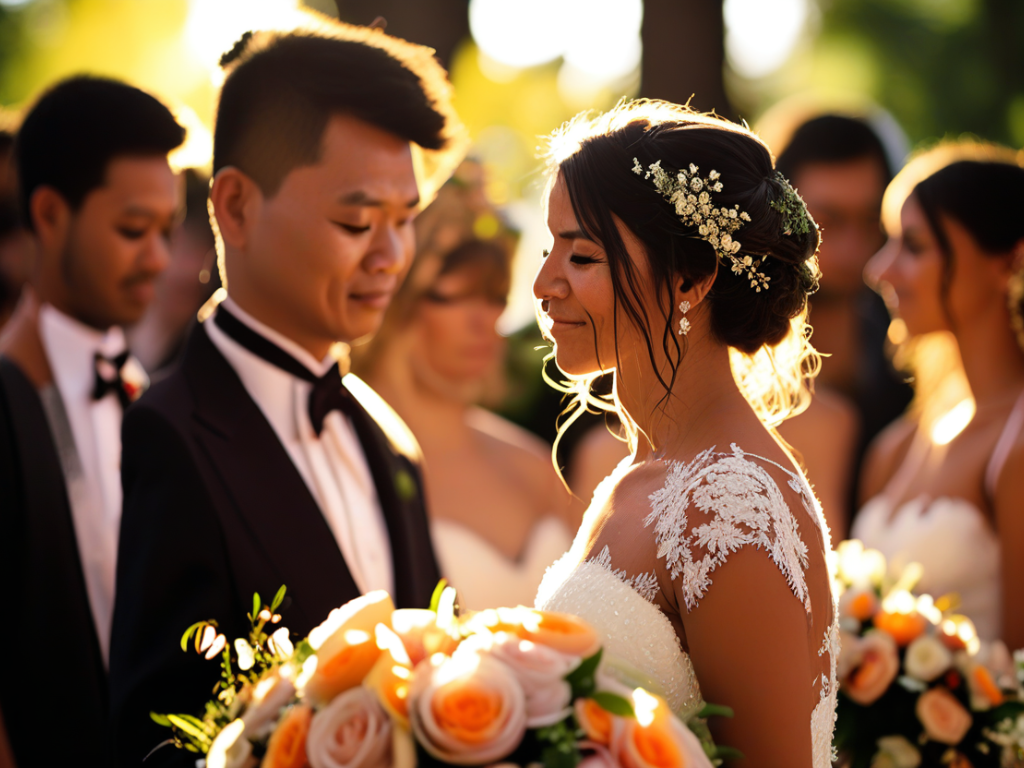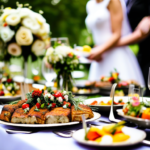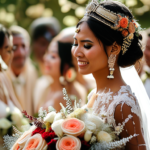Introduction
Wedding ceremonies are filled with meaningful elements that symbolize love, unity, and commitment. Traditional weddings are steeped in symbolism, with each ritual and tradition holding its own significance. Couples often incorporate these symbolic elements into their ceremonies to honor tradition and add depth to their union. In this article, we will explore the symbolic significance of various elements in traditional wedding ceremonies.
In this article you will find:
- Introduction
- The Wedding Ring
- The Unity Candle
- The Wedding Vows
- The Wedding Ceremony
- The Exchange of Gifts
- Conclusion
The Wedding Ring
The exchange of wedding rings is a timeless ritual that symbolizes eternal love and commitment. The circular shape of the ring represents unending and everlasting love, with no beginning or end. As couples place the ring on each other’s fingers, they are expressing their promise to love and cherish one another for a lifetime.
The wedding ring is often worn on the ring finger of the left hand, as it was believed that this finger contains the “vena amoris” or the vein of love that is directly connected to the heart. This tradition adds a romantic and sentimental touch to the act of exchanging rings.
The Unity Candle
The unity candle ceremony is a beautiful ritual where the couple lights a single candle together from two separate candles, symbolizing their unity as they start their journey as a married couple. The merging of the flames represents the joining of two families and the creation of a new shared life.
As the couple lights the unity candle, they demonstrate their commitment to support each other through light and darkness, sharing their joys and sorrows as one. The warm glow of the united flame symbolizes the warmth and light that love brings into their lives.
The Wedding Vows
Wedding vows are heartfelt promises that couples make to each other, expressing their love, devotion, and intentions for their marriage. These vows are deeply personal and often reflect the values and beliefs of the couple. Exchanging vows in front of witnesses and loved ones adds a meaningful and ceremonial aspect to the commitment being made.

The act of reciting vows aloud solidifies the couple’s intentions and sets the tone for their future together. Whether traditional or personalized, wedding vows are a significant part of the ceremony that captures the essence of the couple’s relationship and their hopes for the future.
The Wedding Ceremony
The wedding ceremony itself is a symbolic event that signifies the union of two individuals in love. From the processional to the recessional, each element of the ceremony holds meaning and importance. The selection of readings, music, and rituals can all contribute to the overall symbolism of the wedding.
Couples often personalize their ceremonies to reflect their unique relationship and shared values. Whether it’s a traditional religious ceremony or a modern secular celebration, the wedding ceremony is a time-honored tradition that marks the beginning of a couple’s married life.
The Exchange of Gifts
The exchange of gifts between the couple or with their families is a symbolic gesture that represents love, gratitude, and respect. Couples may exchange personal gifts as a token of their affection or present gifts to their parents as a symbol of appreciation for their support and guidance.
Family heirlooms, cultural items, or sentimental gifts can all add a special touch to the wedding ceremony, creating lasting memories and connections between the couple and their loved ones. The exchange of gifts is a meaningful tradition that showcases the importance of relationships and the bonds of family.
Conclusion
Traditional wedding ceremonies are filled with symbolic elements that add depth and meaning to the celebration of love and commitment. From the exchange of rings to the recitation of vows, each ritual and tradition holds significance and symbolizes the union of two individuals in marriage.
By incorporating these meaningful elements into their ceremonies, couples can create a wedding day that reflects their values, beliefs, and love for each other. Whether following age-old traditions or creating new rituals, the symbolic significance of these elements adds a touch of magic and romance to the special day.


